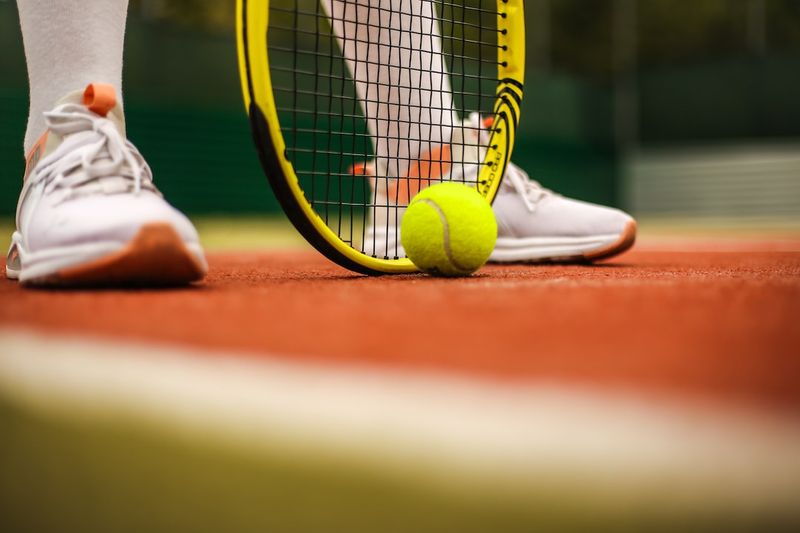- The Return of Saquon Barkley: Impact on the Giants’ Sunday Night Football Match
- Saquon Barkley Makes a Comeback
- The Significance of Darren Waller’s Return
- The Giants’ Inactives
- Tight End Dawson Knox to Play for the Bills
- The Bills’ Inactives
- The On-Field Impact
- The Philosophical Discussion: The Fragility of Athletes
- The Editorial: Prioritizing Player Health
- The Advice: A Balanced Approach
- You might want to read !
The Return of Saquon Barkley: Impact on the Giants’ Sunday Night Football Match
Saquon Barkley Makes a Comeback
After missing the past three games due to a sprained ankle, Giants’ running back Saquon Barkley is set to make his return on Sunday Night Football. The injury, sustained during the Giants’ Week 2 victory over the Cardinals, has kept him off the field for a significant portion of the season. With 38 touches for 155 yards and two touchdowns, Barkley’s presence has been sorely missed by the Giants’ offense.
The Significance of Darren Waller’s Return
In addition to Barkley, Giants’ tight end Darren Waller will also be suiting up for the game. Waller had been questionable after missing practice earlier in the week with a groin injury. His ability to play is a positive development for the Giants, as Waller has been a reliable target for quarterback Daniel Jones this season.
The Giants’ Inactives
While Barkley and Waller will be on the field, the Giants’ active status is marred by the absence of several key players. Quarterback Daniel Jones, left tackle Andrew Thomas, and center John Michael Schmitz are all listed as inactive due to various injuries. The absence of these key offensive players will undoubtedly impact the Giants’ ability to produce on the field.
Tight End Dawson Knox to Play for the Bills
On the other side of the field, the Bills will have tight end Dawson Knox available to play. Despite being questionable with a wrist injury, Knox’s inclusion in the game brings depth and versatility to the Bills’ offensive scheme.
The Bills’ Inactives
The Bills, like the Giants, have their own set of inactive players. Safety Damar Hamlin, cornerback Dane Jackson, linebacker A.J. Klein, and offensive linemen Germain Ifedi and Alec Anderson will not be suiting up for the game. Additionally, tight end Dalton Kincaid will be sidelined due to a concussion. The absence of these players will undoubtedly impact the Bills’ defensive and offensive strategies.
The On-Field Impact
The return of Saquon Barkley is a significant boost for the Giants’ offense. Barkley’s explosive running style and ability to break tackles make him a threat in both the running and passing game. His return will provide a much-needed spark for the Giants, who have struggled to establish a consistent ground attack in his absence.
Furthermore, the inclusion of Darren Waller adds depth and playmaking ability to the Giants’ passing game. Waller’s reliable hands and route-running prowess have made him a favorite target for Jones. His presence on the field will open up opportunities for other receivers and contribute to the overall effectiveness of the Giants’ offense.
The Philosophical Discussion: The Fragility of Athletes
The injury woes of both the Giants and Bills highlight the fragile nature of an athlete’s body. In a physically demanding sport like football, injuries are an unfortunate reality. Players push their bodies to the limit, subjecting themselves to immense physical strain week after week. While advancements in sports medicine and training techniques work to mitigate the risk, injuries continue to be a part of the game.
This reality raises important questions about the role of athletes and their responsibility to their team and themselves. Should players prioritize their long-term health over immediate game action? How can teams strike a balance between player welfare and competitive success? These questions touch on broader philosophical themes surrounding the ethics of sports and the well-being of athletes.
The Editorial: Prioritizing Player Health
As injuries continue to impact the outcome of games and the careers of athletes, it is crucial for teams and governing bodies to prioritize the long-term health and well-being of players. While the allure of victory may tempt teams to push players beyond their limits, it is essential to remember that athletes are not just commodities but human beings with physical limitations.
Implementing measures to prevent injuries, such as stricter regulations on player safety and improved medical support, should be a priority. Equally important is fostering a culture that encourages players to prioritize their health and well-being over short-term gains. Teams and coaching staffs should work closely with medical professionals to ensure that players receive proper care and rehabilitation.
Additionally, fans and the media should recognize the toll that injuries take on players and refrain from blaming them for being sidelined. Athletes should not be expected to sacrifice their long-term health for the sake of immediate glory.
The Advice: A Balanced Approach
While there is no foolproof way to prevent injuries in sports, teams and players can take steps to minimize the risk. Adopting a balanced approach that combines rigorous training, proper rest, and injury prevention techniques can go a long way in preserving the health of athletes.
Coaches and trainers should work together to design training programs that promote strength, flexibility, and injury prevention. Strengthening key muscle groups and incorporating recovery periods can help reduce the likelihood of injuries. Ensuring that players receive adequate medical care and rehabilitation is also crucial in facilitating their return to the field.
For players, it is essential to listen to their bodies and communicate any discomfort or pain to the team’s medical staff. Ignoring warning signs and playing through injuries can exacerbate the problem and lead to more severe or chronic conditions.
Ultimately, the well-being of athletes should be prioritized over short-term gains. By implementing preventive measures, fostering a culture of player welfare, and encouraging open communication, teams and players can work together to mitigate the impact of injuries on the game.

<< photo by Valentin Balan >>
The image is for illustrative purposes only and does not depict the actual situation.
You might want to read !
- Saquon Barkley’s Tenacity Shines Through: Giants RB Active Despite Ankle Injury
- The Missteps of the Giants with Saquon Barkley: An NFL Analysis
- The Giants and Saquon Barkley: A Simple Solution for Success
- Darren Waller’s Hamstring Injury Raises Concerns for Raiders Offense
- Darren Waller’s Giants Debut in Jeopardy as Hamstring Injury Lingers
- The Impact of Cam Akers’ Inactive Status on the Rams’ Clash with the 49ers
- “Mahomes leads Chiefs to dominant victory over Jets in Sunday Night Football showdown”




